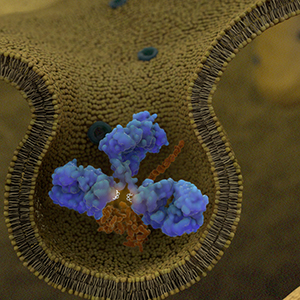Read all about Antibodies to Watch in 2025 here.
From the abstract:
The commercial development of antibody therapeutics is a global enterprise involving thousands of biopharmaceutical firms and supporting service organizations. To date, their combined efforts have resulted in over 200 marketed antibody therapeutics and a pipeline of nearly 1,400 investigational product candidates that are undergoing evaluation in clinical studies as treatments for a wide variety of diseases. Here, we discuss key events in antibody therapeutics development that occurred during 2024 and forecast key events related to the late-stage clinical pipeline that may occur in 2025. In particular, we report on 21 antibody therapeutics granted a first approval in at least one country or region during 2024, including bispecific antibodies tarlatamab (IMDELLTRA®), zanidatamab (Ziihera®), zenocutuzumab (BIZENGRI®), odronextamab (Ordspono®), ivonescimab (依達方®), and antibody–drug conjugate (ADC) sacituzumab tirumotecan (佳泰萊®). We also discuss 30 investigational antibody therapeutics for which marketing applications were undergoing review by at least one regulatory agency, as of our last update on December 9, 2024, including ADCs datopotamab deruxtecan, telisotuzumab vedotin, patritumab deruxtecan, trastuzumab botidotin, becotatug vedotin, and trastuzumab rezetecan. Of 178 antibody therapeutics we include in the late-stage pipeline, we summarize key data for 18 for which marketing applications may be submitted by the end of 2025, such as bi- or multispecific antibodies denecimig, sonelokimab, erfonrilimab, and anbenitamab. Key trends in the development and approval of antibody formats such as bispecifics and ADCs, as well as clinical-phase transition and global approval success rates for these antibody formats, are reported.
“Antibodies to Watch” is an article series started in 2010. All articles are published in mAbs. The series Collection can be accessed here.



